Travel
24 Hours In… Chengdu
IntroThe capital of China’s Sichuan province is best known for its heat-forward cuisine and famous four-pawed residents – those bamboo-loving, black-and-white bears that might just be one of the most loved creatures in the animal kingdom (of course we’re talking about giant pandas!). And while Chengdu locals wholly embrace their status as the country’s panda capital, there’s so much more to this vibrant city with a seriously stylish side. Here’s how to plan one perfect day in Chengdu.
0/13
Travel
24 Hours In… Chengdu.
Temple House7am: Fuel Up – Chengdu is pretty sleepy in the mornings, but an early start is necessary for optimum panda viewing. Guests of The Temple House Hotel and neighbourhood residents alike take advantage of the Temple Café’s early morning hours, starting at 6:30am. If you don’t have time for a sit-down breakfast, which includes both Eastern and Western favourites, the café’s grab-and-go counter is the perfect pit stop before your transport arrives.
1/13
Travel
24 Hours In… Chengdu.
Panda7.30am: Head For Panda HQ – Located about 11 kilometres from the city centre, Chengdu’s Giant Panda Breeding Research Base is home to dozens of giant pandas of all ages – including many juveniles – and is the focal point of China’s panda conservation efforts. Why go so early? Here’s some local intel: The pandas are fed between 8-10am daily, which means they’re most active in the morning. Cue the heart-eye and panda face emojis!
2/13
Travel
24 Hours In… Chengdu.
Shop10.30am: Shop & Snack – A morning spent watching pandas devour bamboo stirs the appetite, which means it’s time to head to Kuan Zhai Alley, also known as Wide & Narrow Alleys. One of Chengdu’s protected historic districts, the ancient crossroads are lined with buildings dating back to the Qing dynasty that today house tiny storefronts, tea houses and vendors hawking everything from steamed buns and spicy noodle dishes to sweet and sticky rice balls. Sample a few Xiaochi (small eats), but don’t ruin your appetite for lunch! [Photo: kattebelletje/flickr]
3/13
Travel
24 Hours In… Chengdu.
Hot Pot12.30pm: Choose-Your-Own Hot Pot Adventure – One of Sichuan’s most iconic dishes is hot pot, that roiling, boiling tabletop cauldron of deliciousness in which you cook all varieties of meat, seafood and vegetables. Traditional Sichuan hot pot can be ordered on a spectrum of spice levels, and in recent years, Chengdu has seen the emergence of Thai-style hot pot restaurants, too. Pro tip: Go halvsies and split the pot, so you can try both a spicy and non-spicy variation in one meal. [Photo: Daniel Harbord/Flickr]
4/13
Travel
24 Hours In… Chengdu.
People Watch2pm: People Watch In People’s Park – Walk off that full feeling from lunch with a stroll through Chengdu’s most famous park, People’s Park, where locals gather for all varieties of dancing, doing Tai Chi, playing mahjong, getting in a couple rounds of badminton and meeting friends for tea, among other active and leisure pursuits. Sprawling over more than 10 hectares, the park is an oasis of green in the heart of the city. [Photo: Jamison/Flickr]
5/13
Travel
24 Hours In… Chengdu.
Monastery3pm: Count Your Blessings – There are few more tranquil respites to be found in Chengdu than the Wenshu Monastery, a Buddhist monastery with more than 1,000 years of history. The monastery has a large collection of cultural relics, paintings and calligraphic works, and the grounds also include peaceful gardens to stroll, a teahouse and a volunteer-staffed vegetarian restaurant that has a reputation for being one of the city’s best. [Photo: daderot/Wikimedia Commons]
6/13
Travel
24 Hours In… Chengdu.
Taikoo Li4pm: Hang With The Cool Kids – Whether you’re searching out the best shops, looking for some A+ people-watching or wondering where to find a good happy hour (or all of the above), the open-air Taikoo Li complex is one of Chengdu’s most popular shopping and entertainment hubs. In addition to designer and high-street stores, Taikoo Li is home to specialty shops including the Fangsuo Commune Bookstore and AnyShopStyle, which spotlights Chinese fashion labels. Tucked away within the grounds, the ancient Daci Temple is a cultural treasure worth discovering. [Photo: Baycroft/Wikimedia Commons]
7/13
Travel
24 Hours In… Chengdu.
Wa Wang Zi5.30pm: Queue With Hungry Locals – Don’t be deterred by the line that begins to form in front of Ma Wang Zi prior to the restaurant’s opening every evening. Founded in 1923, the fourth-generation family-run restaurant serves popular renditions of such Sichuan specialities as fiery mapo tofu, double-cooked pork, roast duck and kung pao chicken or prawns. To skip the queue, do as locals do and make dinner reservations in advance (you can always ask your hotel concierge to assist).
8/13
Travel
24 Hours In… Chengdu.
Pub Crawl8pm: Pub Crawl By The Waterfront – Jiu Yan Qiao Bar Street is perennially popular with Chengdu locals, as it features a wide variety of libation destinations, many with outdoor seating and prime views of the Jinjiang River. Your best game plan for the evening? No game plan, let the night take you where it may. One local haunt you won’t readily spot is Underground Bar, a British-style pub that’s a bit of a treasure hunt to find.
9/13
Travel
24 Hours In… Chengdu.
JING11pm: Grab A Nightcap Close To Home – One more reason to make The Temple House home base for your Chengdu sojourn is JING lounge and bar, one of the city’s best cocktail bars. In fact, JING’s bartenders were named China’s top bar team at the inaugural Barrel Royal cocktail competition. The extensive cocktail menu features drinks that channel bygone eras, as well as speciality negronis, martinis, sours and mojitos. A resident DJ spins nightly, adding to the ambiance inside the sleek lounge and outdoors in the courtyard, too. [Photo courtesy The Temple House]
10/13
Travel
24 Hours In… Chengdu.
ReadRead (& Listen) Before You Go — China has a legitimate rap and hip hop scene, and its epicentre just so happens to be Chengdu. Curious? Start with “Chengdu Cool: The Rise of Sichuan’s Homegrown Hip Hop”, an in-depth feature that published this summer in Guernica magazine, before delving into the YouTube pages of such local talent as Ty, the Higher Brothers and Young13Dbaby.
11/13
Travel
24 Hours In… Chengdu.
WatchWatch Before You Go — Early on, the DreamWorks animation team responsible for conceptualising Po’s village in the Kung Fu Panda movies visited Chengdu’s historic districts – including Wide and Narrow Alleys — in search of inspiration. Brush up on the movies featuring everyone’s favourite dumpling-loving panda before you visit Chengdu to see how many local references you might recognise.
12/13
Travel
24 Hours In… Chengdu.
DownloadDownload Before You Go — Travelling in China is wonderful, but it can also be unexpectedly complicated, especially when you’re used to immediate access to certain apps (as an example, Google doesn’t work here, and Uber is not available in English). But don’t let that stop you from planning to visit. As a part of your pre-trip prep, download a few apps that you can use for getting around town. A Mandarin translation app is highly recommended, as is the Didi app – China’s version of a ride-sharing app, which has an English-language platform as well. Go forth and explore!
13/13


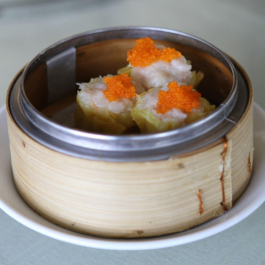
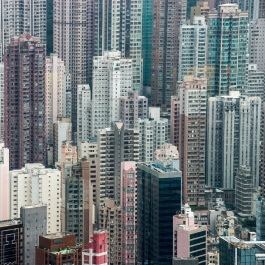
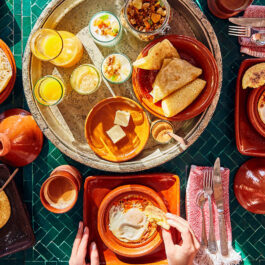
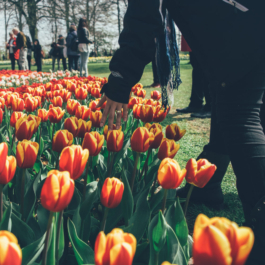
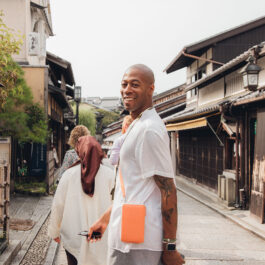

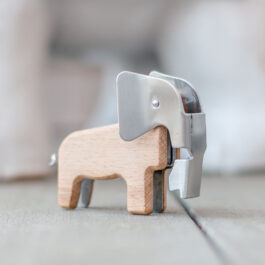



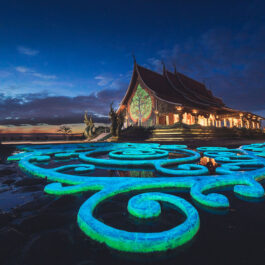

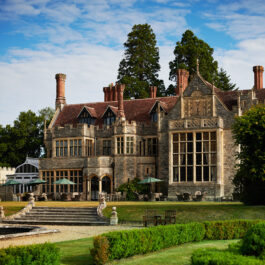

Sorry, the comment form is closed at this time.